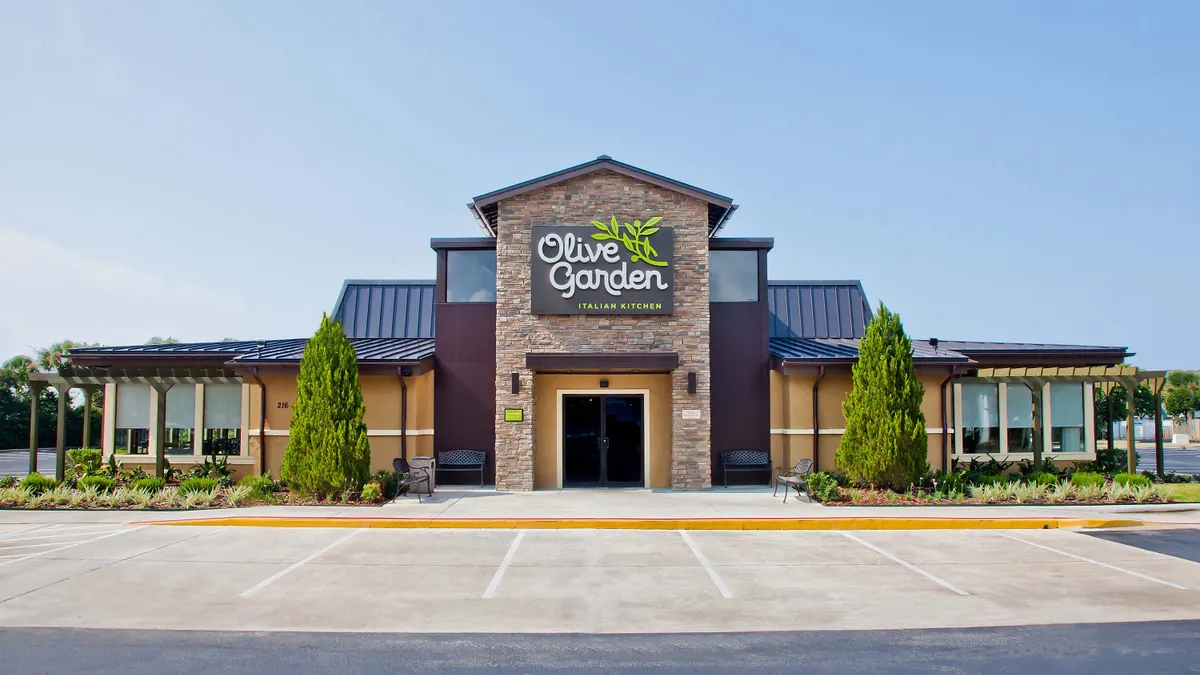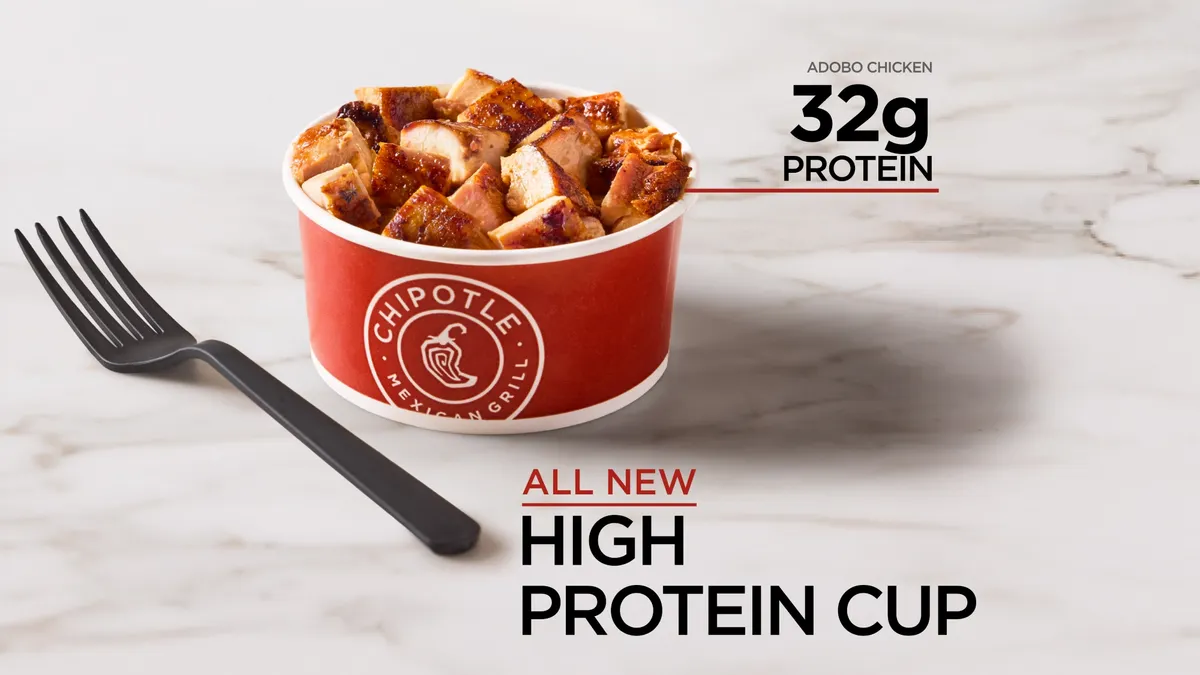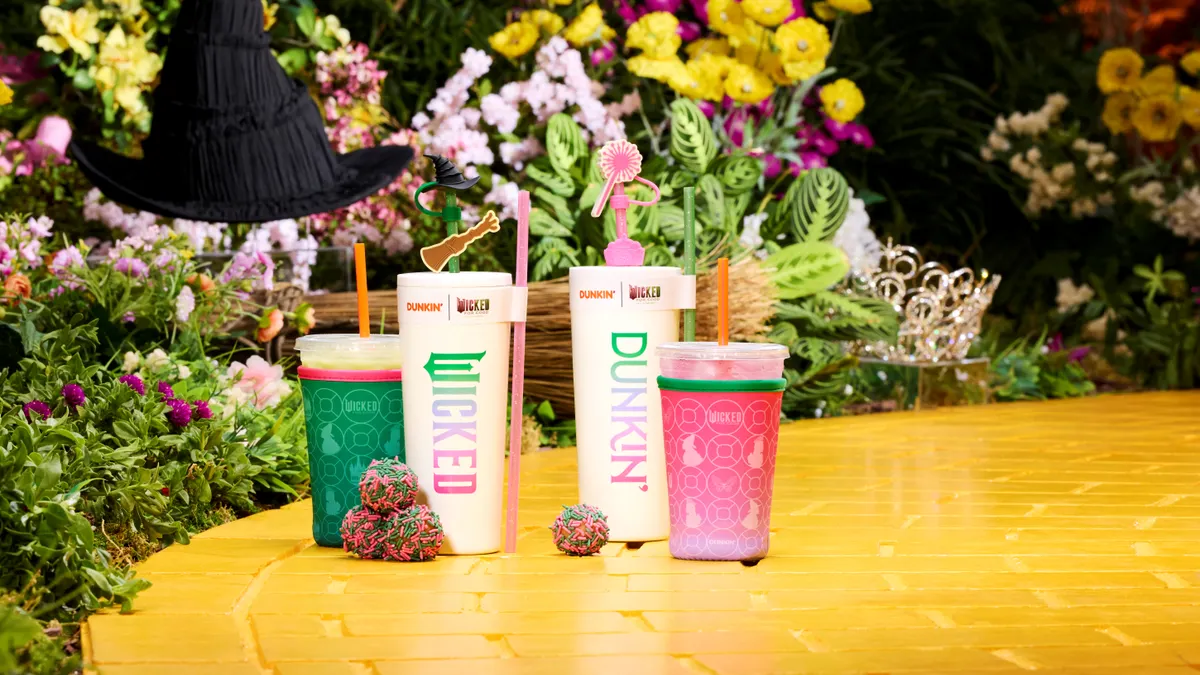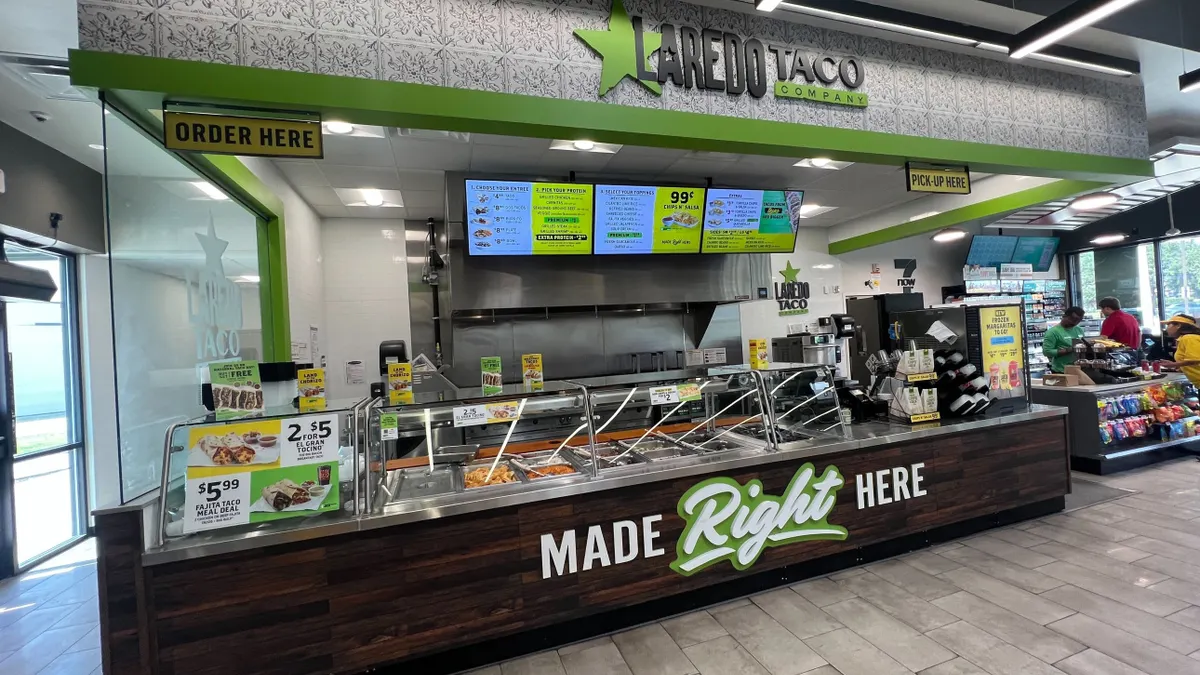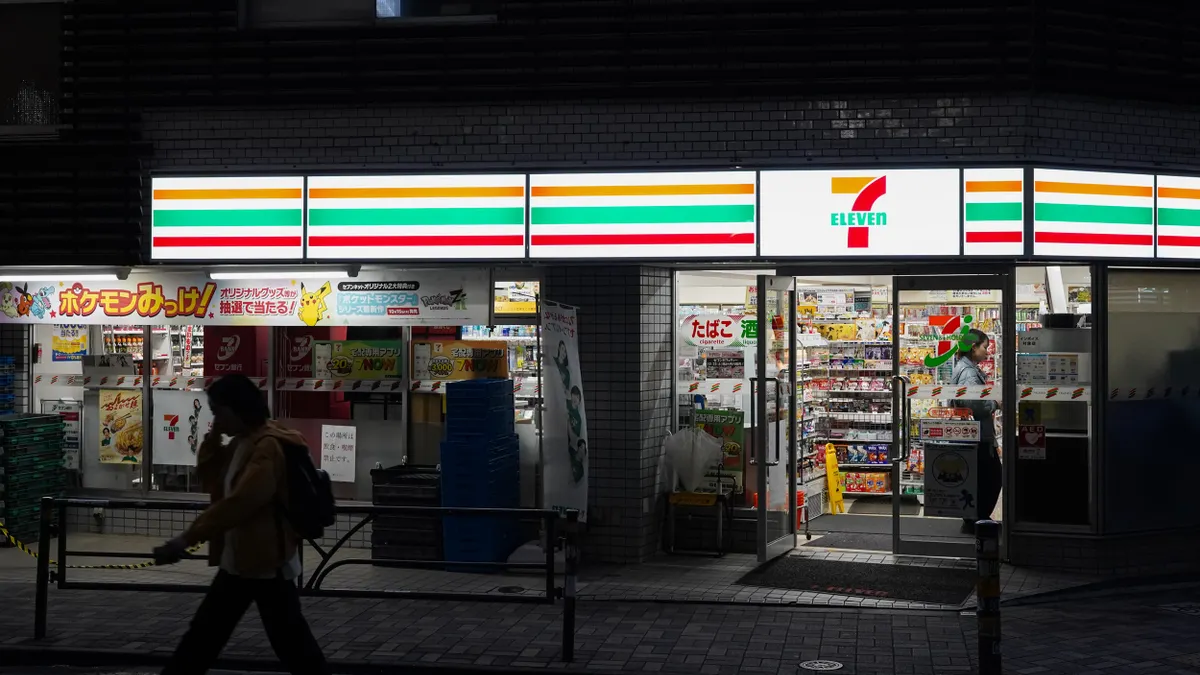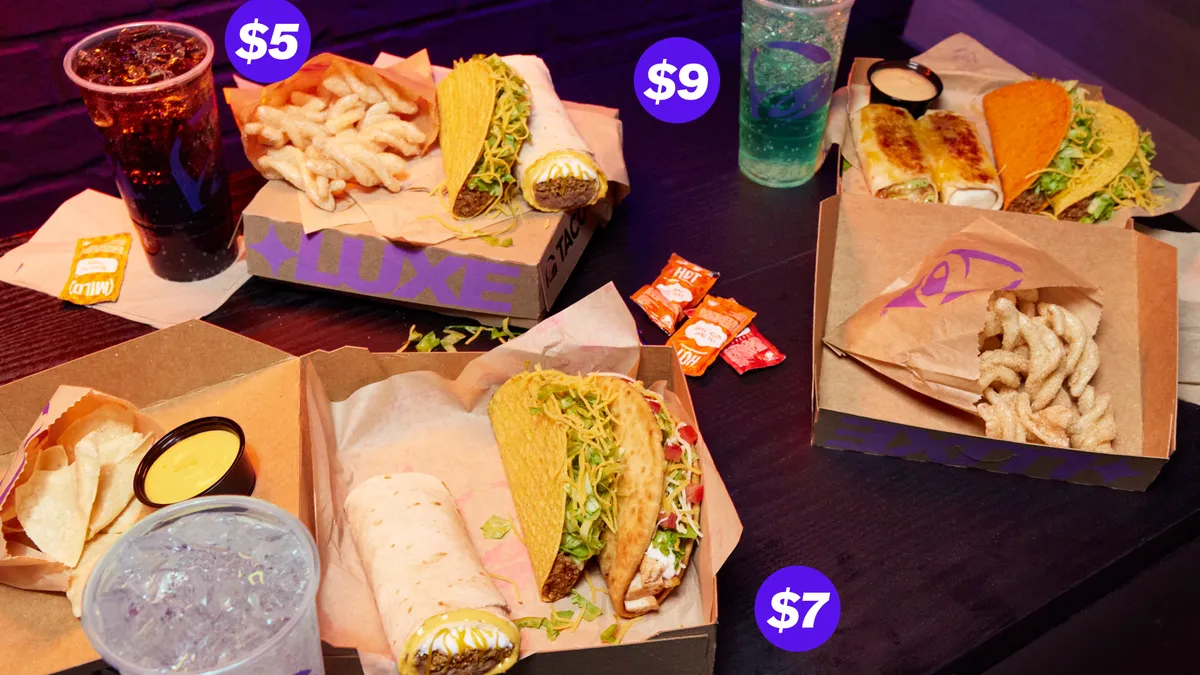In 1995, Black Bear Diner co-founders Bruce Dean and Bob Manley wanted to open a restaurant at the base of Mount Shasta in California to offer great food for their friends. It became so popular customers were driving 60 to 100 miles to visit. They soon opened a second location in Redding, California. They had no idea that about 25 years later, the concept would explode into 120 units across 12 states and counting. Manley has since retired, but Dean has continued on as CEO and has plans to head even further east.
The restaurant began to enter new states in 2002, when Jerry's Restaurants — with locations in Arizona, California and Northern Nevada — wanted Dean and Manley to convert their family restaurants into Black Bear Diners. After that experience, Dean and Manley established Black Bear Diner, Inc. and created a franchise model to expand into Oregon and other areas. The brand most recently opened a location in Montana and has plans to add a minimum of 18 units this year. By 2020, the company expects to grow at a pace of 20 units minimum annually.
Restaurant Dive spoke with Dean about how Black Bear Diner got started, what led it to its expansion beyond the West and how it is differentiating itself in an the crowded family and casual dining space.
Questions and answers have been edited for clarity and brevity.
RESTAURANT DIVE: What has helped Black Bear Diner expand?
BRUCE DEAN: During the recession, everything just slowed to a halt. Franchise growth stopped. We felt it was time to show great confidence in our brand so we actually expanded during the recession. We took failures of other concepts and converted them to Black Bear. Really that's been our model from the start — to take second-generation restaurants and convert them to Black Bear Diner. We grew out of there with many quarters of same-store growth. We continue to do conversions today. It's far more economically desirable. We can go in and convert at an $800,000 average net of tenant improvements and our average unit volume is over $2.6 million. We get great ROI on the conversion opportunity.
"...we actually expanded during the recession. We took failures of other concepts and converted them to Black Bear."
Bruce Dean
CEO, Black Bear Diner
In 2016, we took a private equity partner, PWP Growth Equity [an equity fund managed by Perella Weinberg Partners], that had extensive industry experience and been involved in various capacit[ies] in various brands. They were invested at this point in MOD Pizza and Luna Grill. It gave us the opportunity to enter new markets that we knew we'd be successful in but didn't have the capacity to do it. And we've done it. We grew into the Houston market and have been successful. We grew into Oklahoma. These are units that are owned by the corporation. We fueled some franchise growth in St. Louis and now in Montana. It's really given us the opportunity to prove that we are, in fact, a nationwide brand.
Why expand eastward? Why not add more restaurants in the West where you're more well known?
Dean: We've got a number of franchisees who want to grow out the California market for us and in the West. So we decided to give our franchisees some space to grow in the state. So we took the brand east. We believe it is our job to prove the portability of our brand. I don't want to sit there and sell a franchise in say Missouri or Iowa and not have proven the fact that the brand is portable. I don't want our franchisees to be trailblazer[s]. I believe we need to be the trailblazer for our brand, and then the franchisees can look and say, 'Oh you're opening restaurants successfully in Texas,' and want to come alongside.
"I don't want our franchisees to be trailblazer[s]. I believe we need to be the trailblazer for our brand, and then the franchisees can look and say, 'Oh you're opening restaurants successfully in Texas,' and want to come alongside."
Bruce Dean
CEO, Black Bear Diner
What do you consider when looking for new markets and locations?
Dean: First of all, we just felt that our brand would resonate in the Midwest and the Texas markets. And of course we backed it up with market surveys and demographics and all the things to try to and be scientific about it, but really we felt the markets would respond to us and they have.
We take a hub and spoke approach around these two markets. Oklahoma City is a hub, and Houston is a hub. So we created 250-mile circles around those hub locations. It allows us to grow inside those hubs and service them from a regional approach rather than hopscotching across the country and jumping into a number of markets at once. This allowed us to really use and maximize our DNA to service restaurants within the hub. As we look at the Oklahoma City market, we're going to open in Little Rock in 2019. That is kind of on the outer edge of the hub. We're going to open in the Kansas City market, that's to the north of Oklahoma City, as well as Wichita and Topeka. Around this hub and spoke is really how we're trying to do it. And it has proven effective.
What would you say makes you a disruptor in the family dining space?
Dean: We're kind of in the blended spot between family dining and casual dining. One, our units are all very well- decorated with this cabin theme. It's very experienced-based dining. When people come in, there are carved bears everywhere. This cabin theme differentiates us. We have given great value to price proposition. Our plates are large and our portions are good so people believe they get great value.
We continue to deliver dinner, which is very disruptive in the family dining space. Most family dining concepts don't deliver much dinner — some do, but most don't. They're mostly breakfast/lunch oriented. We deliver over 30% of our sales from 4 p.m. to close everyday. We concentrate really hard on providing great food. Most of it is housemade in the diner. We've taken old recipes from our families and used them, so there is a lot of history around what we’re doing, stories around menu items and sauces and things that we make. So just a much different approach to family dining than what is generally out there.
What makes the family dining segment challenging right now? What makes it exciting?
Dean: To people who are in the business, there are a lot of seats out there and a lot of options for consumers, so obviously you need to differentiate yourself. We need to deliver a great experience for our employees and our guests. I'm constantly pushing the organization and the teams to be as good as we can be.
One of the hottest segments out there is breakfast. We've done breakfast all day long from the very beginning. We're very well-known for our breakfast. We make much of our products housemade. We make homemade sausages and housemade corn beef hash. We use fresh potatoes. We make fresh biscuits everyday. We have a customized pancake mix. We deliver [breakfast] in large portions.
We believe that people need to make the choice of how much they are eating — we're all watching what we're eating. But when we do go out, we want to feel special. So we deliver a nice plate of food for a reasonable price. I think we just go the extra mile.
How is Black Bear Diner ideally positioned to overcome some of these ongoing challenges?
Dean: If you do great work [and] treat your employees well, your guests will feel that. We value every guest. The reality is we can never take our foot off the gas. We continue to provide valuable experiences for people walking in the front door. I can't grow if people don't walk in the front door. We have to continue to provide an experience that makes that happen.
What do you hope Black Bear Diner will look like five years from now?
Dean: I'm hoping Black Bear Diner will look like it has the last 25 years. Everybody is looking to technology and what technology is going to do to our business. I believe technology needs to play a part in our business around how do you make people's experience better, but without replacing the service component that I feel is so important. When you're in the restaurant business and you’re a restaurateur you're providing service.
In five years, we're going to be selling the same food that we've sold with variations as it comes along due to taste and how people's eating changes a little bit every year. But we're going to still be selling bacon and eggs and chicken fried steak and burgers and sandwiches and dinners and all that. I'm hoping the organization looks much the same.
We'll incorporate tech where we can. For example, we're looking at waitlist systems on busy weekends not tethered to the front door so people can go next door and maybe shop and we'll call them on their phone when their table is ready. Those kinds of integrations of technology make the experience better. We're not going to have things on the table. We're not going to have your menus on an iPad. We're not going to have the things that subvert the quality of service that we want to provide.






